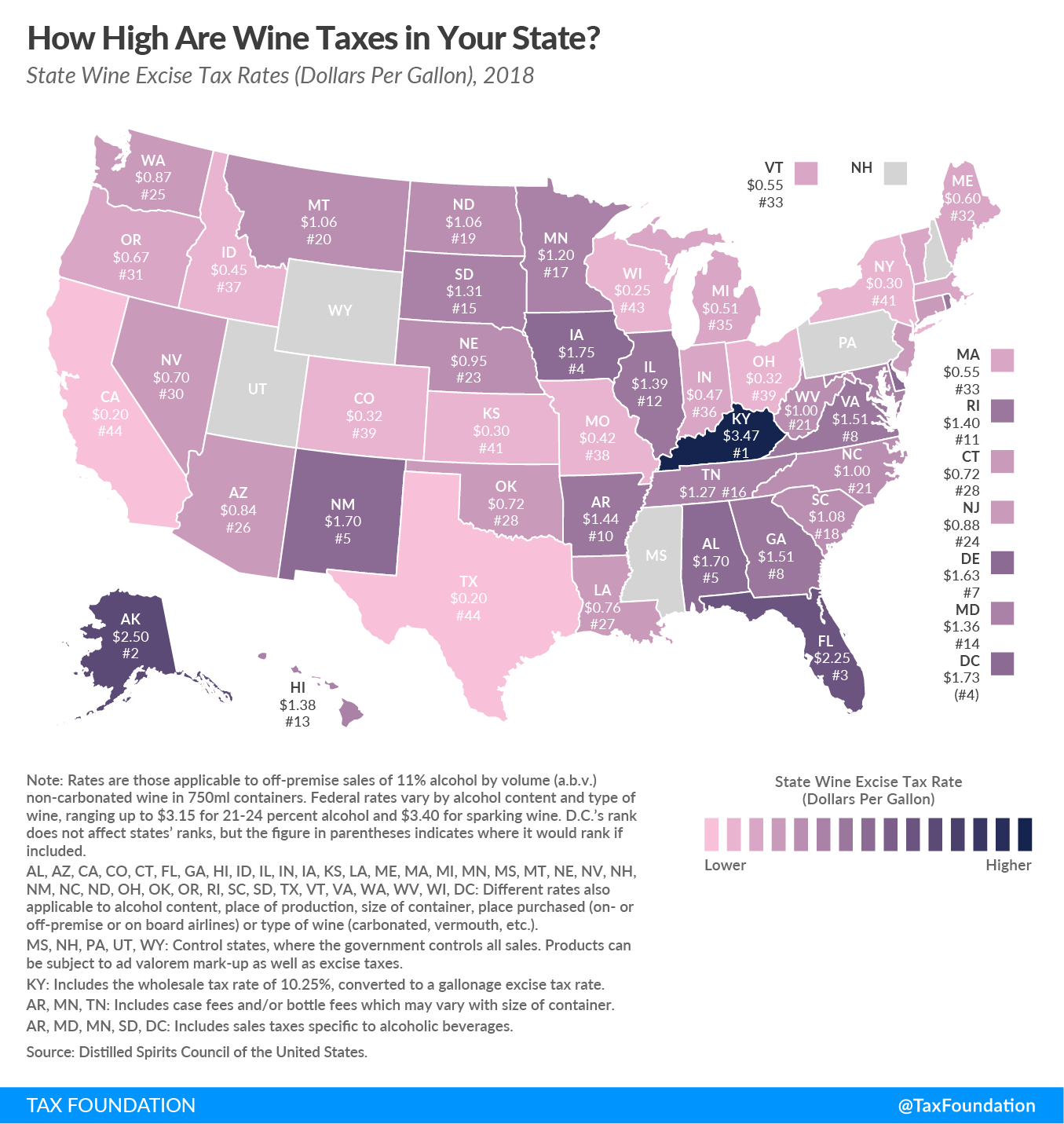Today’s map shows wine excise taxA tax is a mandatory payment or charge collected by local, state, and national governments from individuals or businesses to cover the costs of general government services, goods, and activities. rates across states, expressed in dollars per gallon.
Due to differences in alcohol content, states tend to tax wine at a higher rate than beer but at a lower rate than distilled spirts. Kentucky has the highest wine excise taxAn excise tax is a tax imposed on a specific good or activity. Excise taxes are commonly levied on cigarettes, alcoholic beverages, soda, gasoline, insurance premiums, amusement activities, and betting, and typically make up a relatively small and volatile portion of state and local and, to a lesser extent, federal tax collections. rate at $3.47 per gallon, followed by Alaska ($2.50), Florida ($2.25), Iowa ($1.75), and Alabama and New Mexico (tied at $1.70). The lowest rates are found in California and Texas ($0.20), Wisconsin ($0.25), and Kansas and New York ($0.30).
Stay informed on the tax policies impacting you.
Subscribe to get insights from our trusted experts delivered straight to your inbox.
SubscribeMost states levy per-gallon taxes on wine vendors for the privilege of producing, importing, possessing, or selling wine in their state, but specific approaches vary widely from state to state.
Beyond volume-based taxes, many states impose additional layers of taxes that vary based on wine type, container size, alcohol content, place of production, place purchased, and other factors. For example, Arkansas and Tennessee levy case fees in addition to per-gallon taxes. Minnesota levies bottle fees that vary according to container size, with standard bottles taxed at $0.01 per bottle and miniature bottles taxed at a higher rate of $0.14 per bottle.
When taxes are levied at the production, wholesale, or retail level, vendors ultimately pass along the cost of these taxes to consumers in the form of higher prices. However, some alcohol taxes are paid directly by consumers at a rate determined by the state. Four states and the District of Columbia levy sales taxA sales tax is levied on retail sales of goods and services and, ideally, should apply to all final consumption with few exemptions. Many governments exempt goods like groceries; base broadening, such as including groceries, could keep rates lower. A sales tax should exempt business-to-business transactions which, when taxed, cause tax pyramiding. es specific to alcoholic beverages.
While most states use a licensing system to regulate the sale of alcoholic beverages, other states–known as “control” states–impose a government monopoly on the wholesale or retail of beer, wine, spirits, or all alcoholic beverages. Wine “control” states include Mississippi, New Hampshire, Pennsylvania, Utah, and Wyoming.
How high are wine taxes in your state?
Share